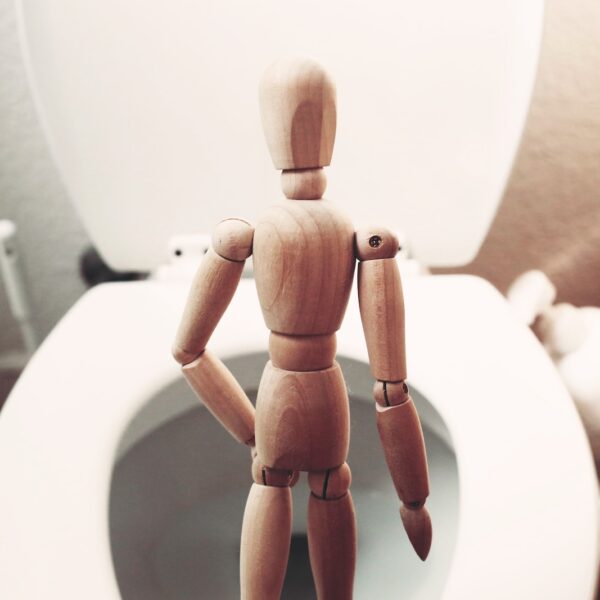If you have a UTI, your doctor or local sexual health clinic will probably recommend that you avoid any penetrative sex or oral sex until your symptoms clear up and your treatment has been completed. This is because sex can easily pass UTI-causing bacteria back and forth.
However, Self notes that there’s some debate about whether it is possible to have sex while you have a UTI.
Symptoms
If you have a UTI, it’s important to get treatment as soon as possible. This is because the longer you wait, the more likely bacteria will overgrow and cause an infection in the rest of your urinary tract, including the ureters and kidneys. Most of the time, a UTI is caused by bacteria like Escherichia coli or other E. coli strains, Klebsiella, or Staphylococcus. These are typically found in the digestive tract, but can be present in the bladder and urethra as well. Being female also increases the likelihood of getting a UTI. This is because the urethra in women is shorter and closer to the anus, which makes it easier for bacteria to enter the bladder from there. Penile sex or using diaphragms for birth control can also introduce bacteria into the bladder.
Symptoms of a UTI include fever, tingling in the legs and arms, painful or burning when you urinate, and cloudy urine that may feel warm or hot to the touch. Usually, symptoms will go away within a week of starting antibiotics. However, it can take longer for certain groups of people to clear their infections, such as those who are pregnant or have a condition that interferes with their kidney function. Home remedies can also help, such as drinking plenty of water, taking a hot shower or bath, wiping from front to back after going to the bathroom, and changing sanitary products often.
Antibiotics
It can take a little while for antibiotics to kick in, but the majority of UTI symptoms should clear up in about a week with plenty of water and home remedies. Some uncomplicated infections can even resolve themselves on their own if they’re fairly minor, says Yanina Barbalat, MD, a urologist at Beth Israel Lahey Health.
However, if you’re still experiencing pain and pressure in your pelvic area after a week, don’t ignore the infection because it could worsen or turn into something more serious. In some cases, bacteria from the bladder can spread to the urethra and the kidneys, which means you’ll need to seek medical assistance.
If you don’t get treated right away, a bladder infection can turn into a more serious kidney infection, which can lead to sepsis, a life-threatening condition that can cause organ failure or organ damage, Dr. Newton explains. If you’re pregnant and have a UTI, a delay in treatment can also be dangerous.
Some people have a higher risk of developing UTIs, including those who are unable to produce enough urine to stay hydrated or have urinary tract conditions such as bladder stones or a weakened bladder muscle. Certain hygiene habits like wearing sweaty clothes, not changing your underwear often enough, back to front wiping, or using spermicide can also increase your risk.
Sex
The reason that having sex during a UTI can make things worse is because it can cause more friction around the area. Plus, it can send bacteria farther up the urinary tract, which can lead to a more serious infection called pyelonephritis. That’s why some doctors recommend waiting until your infection is completely gone before you have sex again.
The vast majority of UTIs are caused by bacteria from the gastrointestinal tract, usually Escherichia coli (E. coli is a normal bacteria that’s common in the digestive tract). Over 80% of people who get a UTI have this type of infection. Having sex can help spread these bacteria to the anal area, and that’s one of the reasons why women with vaginas are more likely to get UTIs than those who have penises.
Men and women with vaginas have shorter urethras, so it’s easier for E. coli bacteria to make their way from the rectum to the bladder. This is also why many health care experts advise that women urinate right after sexual activity to flush out the area. Washing the genital area with warm water is also helpful. And wiping from front to back can help get rid of bacteria that’s still stuck in the urethra. These are simple practices that can help reduce your risk of getting a UTI, especially if you’re prone to them.
Recovery
If you have a UTI, the pain and urgency to pee can make you feel like your body is on its last legs. But it won’t last forever, and a few simple changes in hygiene can help.
According to the American Urological Association, a typical uncomplicated UTI can be treated by taking a short course of antibiotic meds. This typically lasts a week and usually makes symptoms go away. You may also want to try analgesics (like Advil or Tylenol) to ease the discomfort.
While the pain and urge to pee will probably dissipate fairly quickly, it’s important to take your entire course of antibiotics so that you can fully recover from your infection. You should also drink plenty of fluids and wash your hands often to reduce your risk of future infections.
Women are more likely to get UTIs than men because their urethra is shorter and closer to the anus, which can easily pick up bacteria from the vagina. They’re also more likely to get a UTI from fingering, sex, or masturbation because bacteria can easily get into the urethra that way. You can lower your risk by washing your hands well before and after using the bathroom, choosing sanitary pads instead of tampons, and making sure to use the restroom right after sex. This can help keep bacteria from migrating up to the bladder.




Leave a Comment